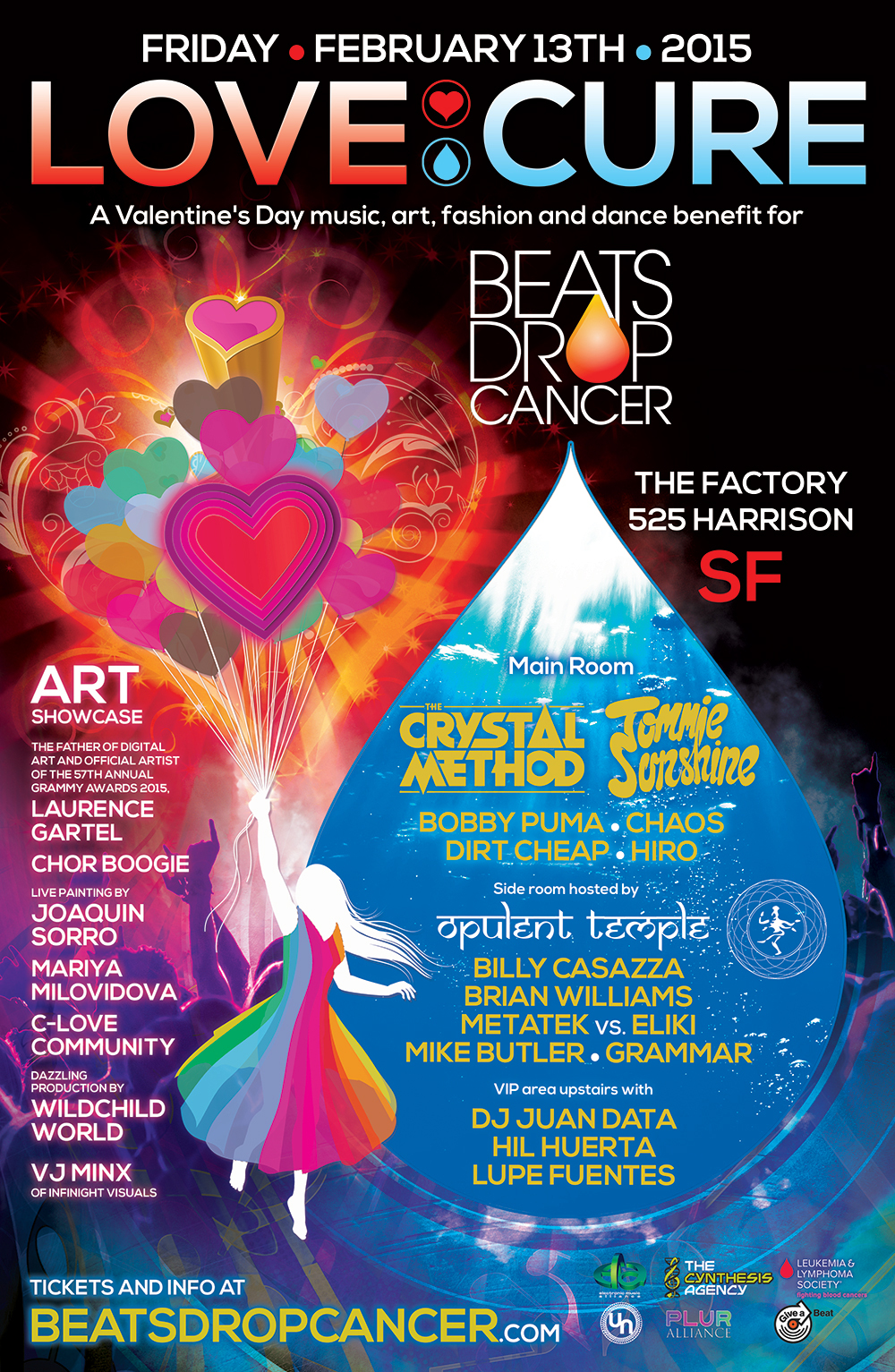Sampling is a convoluted subject when it comes to music. Like… really bad. Samples can largely go unnoticed to people too, even in a semi-processed form, so I try to pay attention to where parts of a song come from for the sake of knowing just what pieces came together to create the project. This is why I had a double take when I heard the Morris Jones single “Love Me Loud.” After asking myself why in the hell I was listening to this piece of progressive crap, I found myself thinking of another track that shared the exact same melodic loop: “Loko.”
As much as I hate to be the bearer of bummer news, when you listen to the main melody used before and after the climax, it is the exact same one that Lookas used in the breakdowns from his original. When you look at the dates these songs were released, you find that the Morris one went live on May 21st, 2014; whereas the Lookas freebie came out in July. Pretty interesting they’d come out so near each other, but when you look at the final piece of evidence later, you will cry and laugh at the same time.
Now, you are probably thinking, who stole it from whom? Your first guess probably wouldn’t be right. Just because “Love Me Loud” came out first, that doesn’t mean we can just assume that Lookas was the thief. The answer: They both have copied.
What in the fuck? How could that be so?
Some of you, I’m sure, have hypothesized it being from a Vengeance sample pack, which is just where our trail is terminated (unless they stole it, but for now that’s as far is this journalist has gotten). At this point, we rest upon the fact of having a synth loop from Vengeance Dirty Electro Vol. 3, specifically the Angel Kit, that was used in two songs. Instead of sending you the torrent, I mean… purchase for the download of the pack, the evidence that we have is in the form of this short sample mix. Listen in at 6:16.
If you were wondering the date on that, the sample pack came out on January 15th, 2014. I’m glad Lookas dropped his as a freebie, but I think anyone who bought that crummy progressive single should get their money back. What makes me the most sad is this laziness translates over to live shows too. Who would have thought? Instead of getting to that next, though, we are going to unveil even more examples of possibly abusive sampling in tracks, after you check out Lookas’ quote he provided regarding his situation.
“I did not steal the melody, nor did they [Morris Jones] from me. I did use that sample because it fit the song pretty well. ‘LOKO’ is a song that goes off live and gets my crowds hyped. If you have a problem that I used a royalty free sample, then I’m sorry. That’s why we gave it away for free. It was for my fans because I love them.”
First, given what Lookas had to say, we should define some lines. Legally speaking, it’s okay to use samples and loops from Vengeance packs. However, when you use a sample like Lookas did, it can weaken the originality of the track, while also bring into existence the possibility to question, at least somewhat, the creative wherewithal of the producer. Not that I disrespect Lookas and think he’s a cheat, but with this one, I do feel pretty meh about the fact it’s straight up from a Vengeance pack. One that I really have a gripe with is Steve Angello‘s Beatport #1, “KNAS.”
Although this one has already received coverage, thanks to Beatport who helped shed some light on it, this one is just blatant and sullied for me. In using this loop as the main melodic phrase, I just can’t even bear to listen to that song anymore. You know when you find out something that makes you feel like your whole world is a lie? That’s how I feel. Except I never much listened to the song, so at least it’s not too bad for me.
In keeping with dance music, we look next at someone who has received his fair share of flak since the release of “Animals.” You know who. Martin Garrix, before the explosion, released a song called “Keygen” through Spinnin’ Records that made use of a synth loop from the Lovely Day Kit of a Vengeance pack. A kick, sure; a snare, whatever (hopefully it’s layered, same with the kick); but a full on melodic loop is pushing my buttons in a bad way, usually.
What about drum loops? Well, personally I don’t know exactly how I feel about them yet, but I still feel they’re more along the negative spectrum, creatively speaking; unless… well, let’s just say sampling songs for hip-hop is a whole other talk we can have sometime.
In the pop realm, we have a Rihanna song, written by The Dream, Jay-Z, (and produced by) Tricky Stuart and Kuk Harrell that has something that is pretty open for debate. We find the use of an Apple drum loop in the song “Umbrella,” which was ranked at 412 in Rolling Stone’s 500 Greatest Songs of All Time. Is that not a little unsettling?
Another example from the mainstream comes from another huge star, Usher. His song, “Love In This Club,” made use of a stock melody from GarageBand. The video proof I found will show you the evidence, however I think the guy could have pulled off the video a bit smoother. Check that out here.
Other examples include Caked Up (what a fucking surprise?), Nari & Milani, Chris Brown, Lady Gaga, and it’s rumored that a New World Sound track uses a loop for the drop; however, I could not find a video or anything proving that. You can also check out this comprehensive list compiled by an individual who must have a hell of an ear, however most of the items on that list are non-loop samples.
Before I begin to wrap this up, we’ll look at two examples that bring up possible rebuttal points. First, an OWSLA track from Ghastly, Mija and Lil Jon that offers up a unique situation.
The composition of “Crank It” features a variety of sounds, with one in particular being the driving force after the climax. Although other sounds accompany it as the measures pass, the main phrase is actually a pre-made bassline straight from RA Ultimate Garage & 2 Step Vol. 2. There is some processing on the sound, as the original one is pretty weak, but when you listen to the song, and the sample, you’ll see that they are the same. This begs the question, is using a loop and chopping other sounds into it occasionally something that is reasonable, or is it still a weak link in the creative chain?
The next example comes to us from Black Tiger Sex Machine, whose recent EP title track, “Funeral March,” makes use of Chopin’s work as a sort of homage, which is more along the lines of a sampling instance like you have in “She’s Crafty” and “Bout Ta’ Bubble,” instead of taking from Vengeance. The instrumentals from each of those songs rely on a loop sample taken from a previously released song. In this particular example, though, the guys have reconstructed the piano, but utilized the same notation as Chopin. Cheating? Well, I wouldn’t say so. Their work is a new age spin-off that pays tribute to another iconic work. It is a revitalization of previous magic, not simply a lazy maneuver to get the song finished more quickly with less effort.
Sampling is a touchy subject. Without even getting into the copyright side of things, we already have numerous sample circumstances, all of which can be judged differently. Although the use of samples (more specifically, loops), is not illegal, their use does bring along its own questions. What is creatively “wrong” or are there even any definable lines as to what constitutes that wrongdoing? For me, I see the art of sampling as a spectrum that goes from acceptable and awesome, down to poor and illegal.
The examples from today deal with that middle ground without any consideration for vocals and other similar sound clips. Should the producer be shamed for using a pre-made loop? Really, it all depends; each case can be looked at differently and I think the standards for dance music play in a little different to the situation than a genre like hip-hop or with someone like Pogo. I don’t think there will be one overarching objective rule we can come up with that will resolve any of the issues brought up today, unfortunately.
Banning loops from the creative world would be absurd, but do they have a place in the libraries of professional producers who make money from their work? Sure. However, using a loop in your final piece of (usually) profitable property is questionable. Are they a good tool to get started? Of course. Can loops be used by the pros, but never identified? You bet. However, if you are going to cut a major corner in your song composition by sampling a pre-made loop, then it better fit as perfectly as Led Zeppelin’s riff in “She’s Crafty,” by the Beastie Boys (yes, I broke the dance/hip-hop barrier I set, I’m aware). Basically, it can’t be made any better any other way.
Instead of being a careless zombie, absorb your music and have a point of view. Should these professionals be held to a higher standard? Should we just not care that these musical chefs are following someone else’s recipe and calling it their own, instead of creating new ones? We probably should care… Actually, we definitely should care. Because when you find out your made-to-order meal is actually just a plain ol’ Hungry-Man meal heated up and covered in house gravy, that’s gonna piss you off. Why should this be any different?










